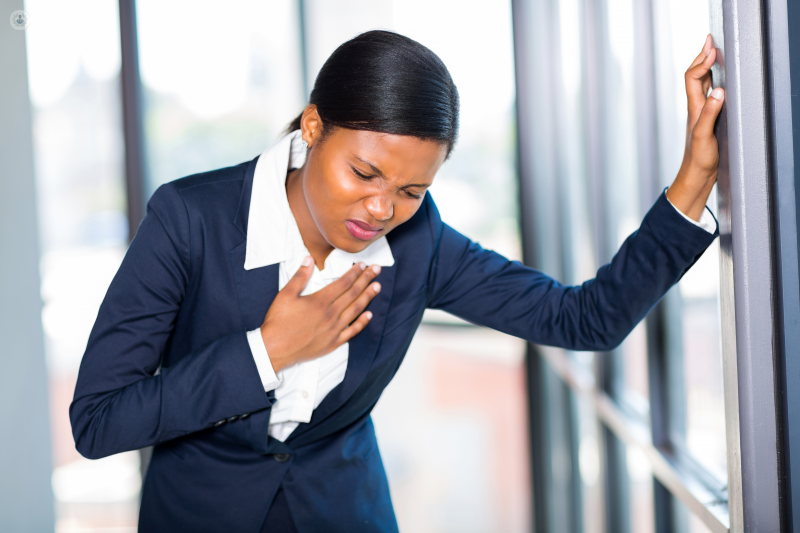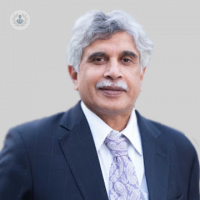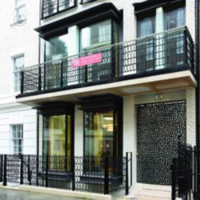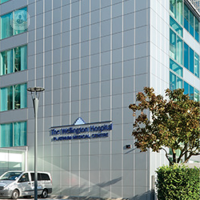Chest wall tumours
Mr Shyamsunder Kolvekar - Cardiothoracic surgery
Created on: 04-26-2017
Updated on: 04-27-2023
Edited by: Karolyn Judge
What are chest wall tumours?
The chest cavity is an enclosed space which houses several major organs, including the heart, lungs, and oesophagus. The chest wall is made up of the ribcage and diaphragm, the structures of which are flexible enough to move inwards and outwards to permit breathing, while being strong enough to protect the organs inside.
Like any part of the body, the chest wall can develop tumours – abnormal growths of cells. Tumours can be benign or malignant (cancerous). Benign tumours are relatively common and may not require treatment, unless they are causing pain or trouble breathing. There are three main varieties:
- Chondroma
- Osteochondroma
- Fibrous dysplasia
Cancerous chest wall tumours are fairly rare. They are usually sarcomas formed from bone cartilage or soft tissue in the chest wall.

Are chest wall tumours serious?
While benign chest wall tumours are rarely serious, the small percentage of malignant tumours can be fatal if left untreated. Although the vast majority are benign and painless, you should see your doctor immediately if you experience any symptoms of chest wall tumours.
What are the symptoms of chest wall tumours?
Chest wall tumours can cause the following symptoms:
- Chest pain
- Swelling
- Lump on the chest
- Impaired movement
Physical signs such as chest lumps may be discovered by chance while showering, for example.
Medical tests to diagnose chest wall tumours
Several diagnostic tests for chest wall tumours can be used to locate and assess chest wall tumours in order to plan treatment:
- X-rays – this general imaging scan can discover chest wall tumours but may not necessarily show if the tumour is benign or malignant.
- CT scan – can give a closer and more detailed examination of the chest wall tumour, giving more information about the type and size.
- MRI scan – like a CT scan, MRI scans give more information than X-rays.
- PET scans may be able to tell if the tumours are cancerous or not.
- Pulmonary function tests – these assess a patient’s lung reserve to see if they can tolerate an operation to remove a tumour from the chest wall.
- Biopsy – usually the sample of tissue from the tumour is taken via a needle, but if this is not possible an open biopsy may be performed.
What are the causes of chest wall tumours?
The precise causes of chest wall tumours are not fully understood. However, it is believed that genetics play a role, as they seem to run in families, while diet and lifestyle choices are also thought to be factors.
How are chest wall tumours treated?
Benign chest wall tumours may require no treatment, although sometimes it is impossible to know if it is benign or malignant without removing it. Sometimes benign tumours must be removed because they are interfering with organ function (such as breathing), causing muscle atrophy, or restrict movement.
Cancerous chest wall tumours may be treated with chemotherapy, radiotherapy, surgery, or a combination of the three. Often, a section of the ribcage must be removed, and chest reconstructive surgery must be implemented, using soft tissue replacement and/or prosthetics to restore the patient’s chest to a normal appearance.
Which type of specialist treats chest wall tumours?
Cardiothoracic surgeons are responsible for any kind of chest surgery, including chest wall tumours, while oncologists specialise in treating cancer. Both types of specialist may work together on cases of malignant chest wall tumours.







